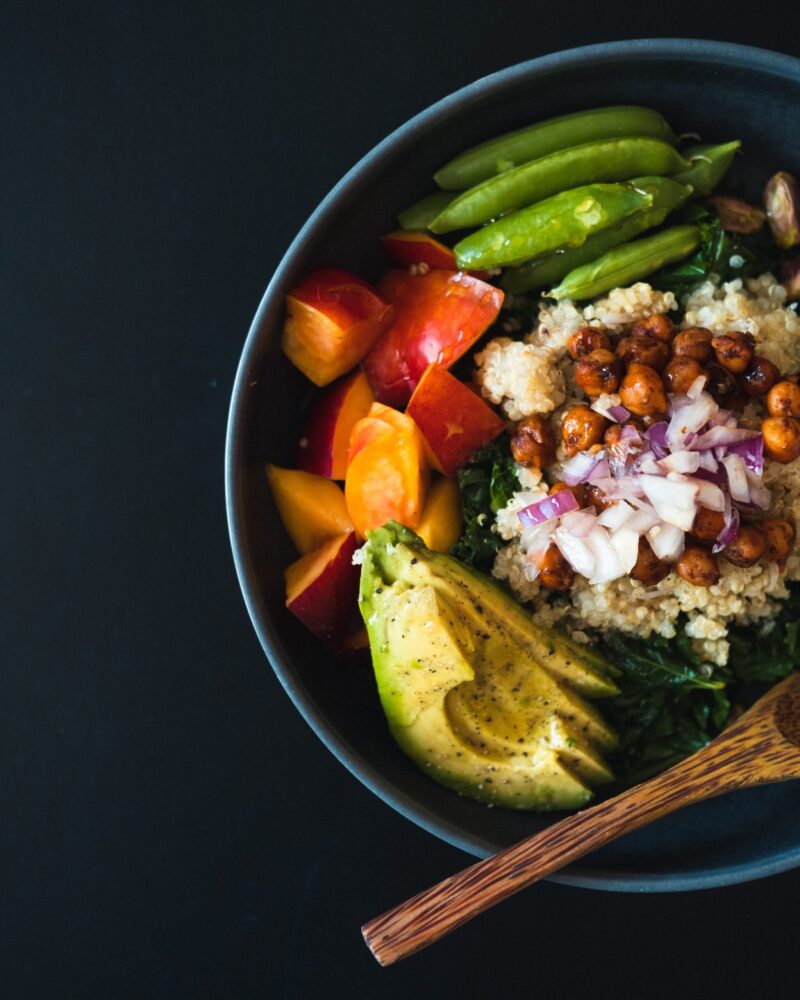May 2022 Plant-based protein - A simple guide to getting enough
By Amity Warme
Plant-forward diets have dramatically increased in popularity over the past several years (see our Plant-forward blog to learn more.) Research shows that following a plant-forward diet can improve health while also reducing environmental impact. If you’ve ever considered transitioning to a plant-forward diet you may have wondered “Can I get enough protein? What are good sources of plant-based protein?” Continue reading for answers to these important questions.
What is protein?
Proteins are found throughout the body in muscle, bone, skin, hair, and other tissues. They enable muscles to move, help carry oxygen in the blood, make up enzymes that power chemical reactions, and so much more. Proteins are made up of 20 amino acid building blocks. Eleven of these are called nonessential, meaning they can be made in your body. The other nine are called essential, meaning they need to be obtained through the diet. Foods that contain all nine essential amino acids are called “complete proteins”, while foods that are lacking in one or more essential amino acids are “incomplete proteins”. Some plant-based proteins are incomplete, but eating a variety of plant-based protein sources throughout the day will ensure that your body’s needs are met. Plant-based foods rich in protein include grains, beans, nuts, seeds, and soy.

Benefits of consuming plant-based protein:
Research indicates that replacing some animal-based protein with plant-based protein sources may help decrease the risk of developing chronic diseases such as heart disease, diabetes, and some cancers. Plant-based foods contain important antioxidants, vitamins, and minerals that benefit overall health. Additionally, the fiber in plant proteins lend to increased satiety and improved gut health. Plant-based proteins also have a lower environmental impact as more greenhouse gasses are emitted with the production of animal-based proteins.
Considerations for eating plant-based protein:
Meeting nutrition needs with plant-based foods is doable and easier than many think!
- Eat a wide variety of plant-based foods. Many plant-based protein sources are lacking in one or more essential amino acids. Choosing different options throughout the day ensures adequate intake of all essential amino acids.
- Choose plant-based milks with added calcium and vitamin D – these micronutrients are found in dairy, but can be obtained through plant-based sources as well.
- Sample different kinds of whole-grains, beans, and lentils – these foods provide a full package of complex carbohydrates, protein, iron, zinc, and B-vitamins.
- Sprinkle nutritional yeast on your meals – this flavor-filled ingredient is a great source of vitamin B12, a nutrient commonly obtained from meat.
- Mix in nuts and seeds – another nutrient-dense option packed with healthy fats, protein, magnesium, and more.
- Choose soy-based foods – soy is a complete protein, meaning it contains all nine essential amino acids
Check out the table below for ideas of protein-powered plant foods!
| Food | Amount | Protein (g) |
Soy Products (complete protein):
|
|
|
Legumes:
|
|
|
Nuts and Seeds:
|
|
|
Meat replacement products:
|
|
|
Grains:
|
|
|
Other:
|
|
|
Conclusion:
Including more plant-based protein is a win for the health of your body and the health of the planet. A little planning and an open mind will allow you to utilize the abundance of plant-based protein possibilities to nourish your body and fuel your adventures! See our Sweet Potato Black Bean Burgers recipe for a great example of how to add some delicious plant-based protein to your plate!
Get to know our author:
Warme grew up in Loveland, Colorado, but currently lives in a van that she and her husband converted to a mobile home. They base out of the Front Range and Washington but spend the majority of their time traveling around the western U.S. to various rock climbing destinations. Warme graduated in December with her master’s degree in Sports Nutrition from the University of Colorado at Colorado Springs. She recently completed her dietetic internship, and is one step closer to becoming a registered dietitian. Learn more about Warme in her KRNC Spotlight post from February 2022.
More Information
For additional resources for healthy eating, check out these programs from our registered dietitian nutritionists. Find delicious and healthy recipes on our Recipes page! More health tips are also available at the College of Health and Human Sciences Pinterest board. Lastly, don’t forget to sign up for the KRNC monthly newsletter!


